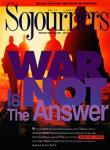South Africa in the early 1990s was a strange and confusing place. With the exception of the small but politically significant white right wing, everyone claimed to be opposed to apartheid. The white Dutch Reformed Church (NGK) was no exception.
At its October 1990 general synod, the NGK confessed "allowing forced separation and the division of peoples ... to be considered a biblical imperative." While affirming "the right and freedom to remain true to one's own cultural heritage," the resolution went on to state that "any attempt by a church to try to defend such a system biblically and ethically must be seen as a serious errancy; that is to say, it is in conflict with the Bible."
The definitive defense of apartheid by the Dutch Reformed Church in 1974 ultimately led to its exclusion from the World Alliance of Reformed Churches in 1982 and the declaration of theological support of apartheid as a heresy. In 1986 came Church and Society, a more nuanced document by the NGK offering qualified support for apartheid.
After the 1990 synod, many asked whether the latest shift in the NGK was merely further reflection of a shift in government policy -- giving support to F.W. de Klerk's era of reform much the same way the 1974 statement provided the spiritual aroma of the era of Verwoerd and Vorster and the 1986 document expressed the secularized politics of P.W. Botha.
Renewed interest in the declared position of the NGK provided extra interest at the Rustenburg Conference held in early November 1990 (in Rustenburg, South Africa). The most representative church gathering in South African history, the conference brought together member churches of the South African Council of Churches (SACC), Roman Catholics, African Independent Churches, the NGK, as well as a range of "apolitical," conservative evangelical churches.
The purpose of the conference was to have the churches share in creating a new climate for political negotiations. Could this wide range of churches speak with one voice in rejecting apartheid? Would the NGK associate itself with those churches that had already declared apartheid to be in violation of the theology and praxis of the gospel?
THE DEBATE THAT ENSUED was intense. The moderator of the NGK openly confessed the guilt of his church, and former State President P.W. Botha was on the phone demanding that he recant. The evangelicals confessed their indifference to the social implications of the gospel, and the SACC member churches confessed the yawning gap between their theological rejection of apartheid and their racist practices. "It's all a bit like a revival meeting," said a somewhat cynical secular journalist.
A sense of remorse in the face of the magnitude of the suffering produced by apartheid placed a confession of guilt and call for repentance at the center of the Rustenburg Declaration. There are compromises in the language of the declaration and a certain amount of ambiguity of which everyone is aware. The declaration nevertheless rejects the theological support of apartheid as a heresy and sin, and calls for concrete forms of restitution. "Some of us are not in full accord with everything said in this conference," the declaration reads, "but on this we are all agreed: the unequivocal rejection of apartheid as sin."
The euphoria was extensive. But disappointment came with a press statement made by the moderator of the NGK immediately after the declaration was adopted by consensus. He reaffirmed his confession of guilt on behalf of the NGK, but disassociated his delegation from some aspects of the declaration, stating he did not know what the "unequivocal rejection of apartheid" meant.
For some, this was double dealing. "You cannot trust what they say," insisted the moderator of the black Dutch Reformed Church, Rev. Sam Buti, whose church had over the years borne the brunt of the white church's racism.
Perhaps there is more involved than trust, with the behavior of the NGK moderator providing a window into the soul of an agonizing and sinful church. And clearly the other churches, as was stated by several participants at the Rustenburg event, were in practice not vastly different from the NGK. St. Paul wrote: "I do not understand my own actions. For I do not what I want, but I do the very thing I hate" (Romans 7:15). There were many within the NGK who knew what is right and what was required of them. The burden of history and the weight of white privilege were, however, such that the road to genuine reform involved more than a rational decision. It seemed likely to only come about ambivalently and by way of contradiction.
The Rustenburg Declaration had perhaps brought the churches in South Africa closer together than ever before. Full ecumenical unity, however, had not yet emerged. "We have started a process," said SACC General Secretary Frank Chikane. "I only hope the NGK will be able to move ahead with us. Time will tell whether they can."
The ultimate theological question was indeed not whether there were sincere white Christians -- in the NGK and elsewhere -- who wanted to mend their ways; but whether human nature, bolstered by the privileges of wealth and status that the apartheid society gave whites, is capable of doing so.
Self-interest is a powerful moral incentive. This is why it is so important that pressure of various kinds be maintained on whites in both church and society in South Africa.
Charles Villa-Vicencio was a frequent contributor to Sojourners and professor of religion and society at the University of Cape Town in South Africa when this article appeared.

Got something to say about what you're reading? We value your feedback!